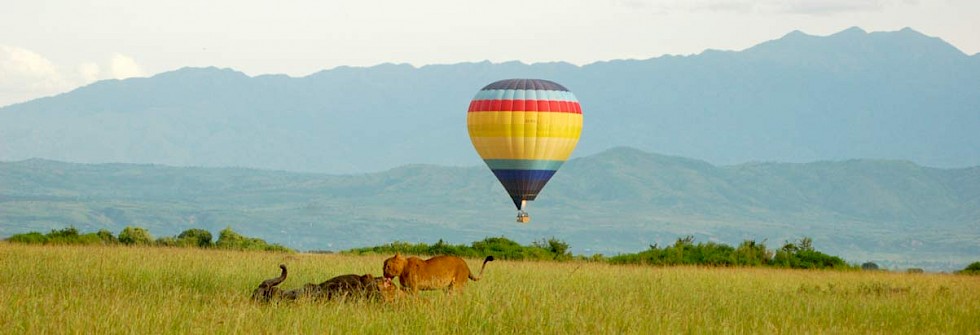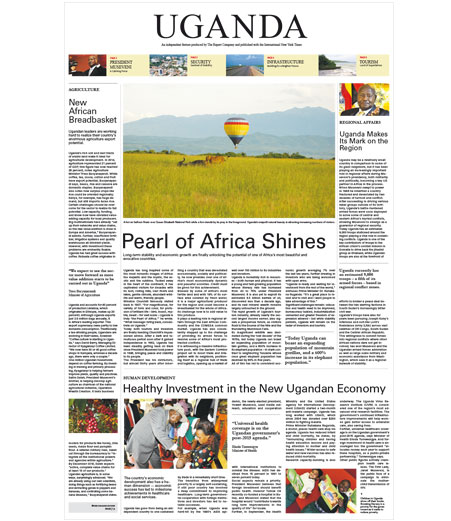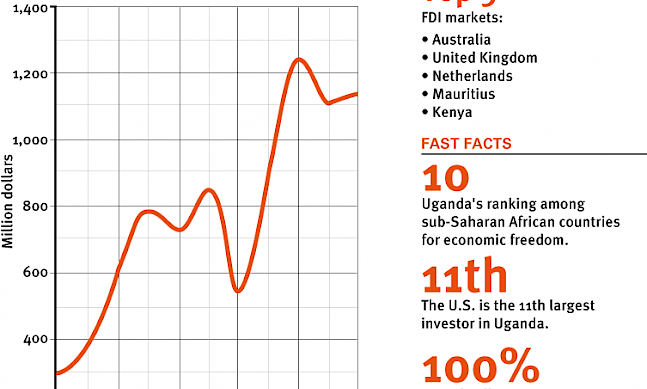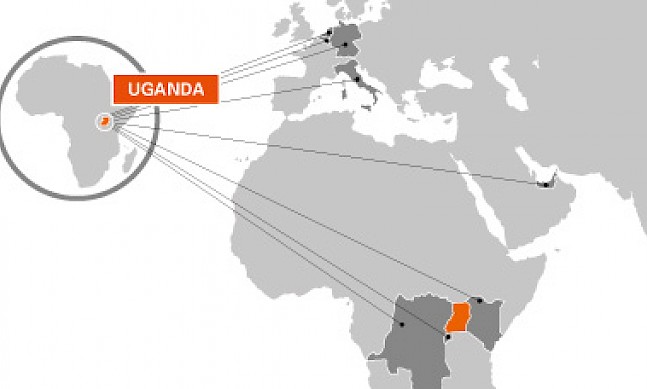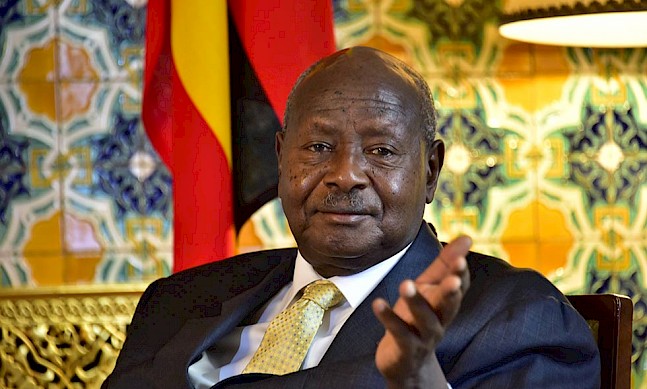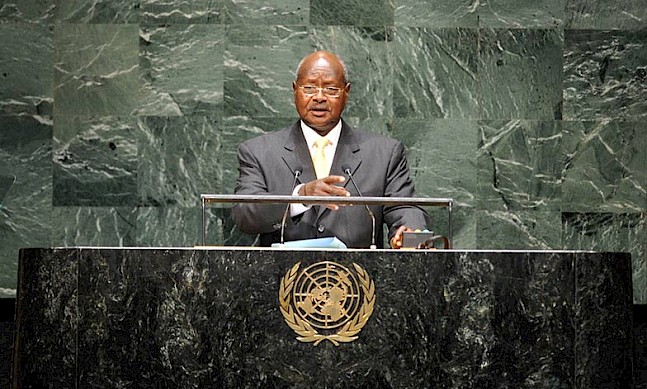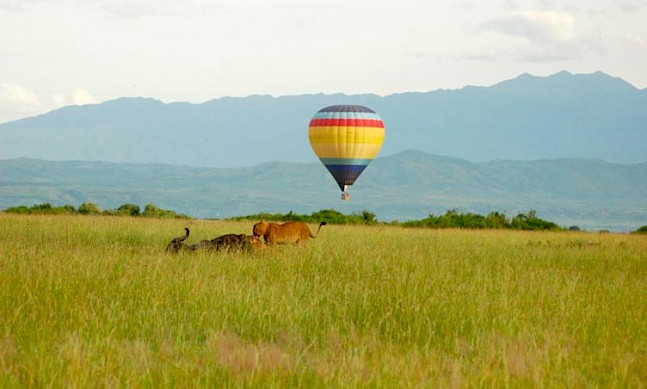Long-term stability and economic growth are finally unlocking the potential of one of Africa’s most beautiful and evocative countries.
Uganda has long inspired some of the most romantic images of Africa: the majestic and the mystic, the exotic and the sublime. Tucked away in the heart of the continent, it has captivated visitors for decades with its lush, rolling hills, vast rivers and lakes, gentle climate, abundant wildlife and warm, friendly people.
Winston Churchill famously visited back in 1907: “For magnificence, for variety of form and color, for profusion of brilliant life – bird, insect, reptile, beast – for vast scale – Uganda is truly ‘the Pearl of Africa,’” he wrote. “What message I bring back, concentrate on Uganda.”
Today both tourists and investors are finally heeding Churchill’s impassioned advice. After a dark and tumultuous period soon after it gained independence in 1962, Uganda has been steadily getting back on track since President Museveni took power in 1986, bringing peace and stability to its people.
The President has his detractors, but almost thirty years after inheriting a country that was devastated economically, socially and politically, he now presides over one of Africa’s most economically dynamic and peaceful societies. Credit must be given for this achievement.
Blessed by some of Africa’s most fertile land and with 18% of its surface area covered by fresh water, it is a major agricultural producer for the region and could become a breadbasket for the whole of Africa. Its challenge now is to add value to this produce.
It plays a leading role in regional affairs through the East African Community and the COMESA common market. Uganda has also consistently stepped up to the challenge of providing its armed forces to resolve some of Africa’s most protracted conflicts.
It is witnessing a massive infrastructure push, with the Eastern Corridor project set to boost trade and integration with its neighbors, positioning itself as a regional hub of trade and logistics, opening up a market of well over 150 million to its industries and investors.
Uganda is incredibly rich in resources – both human and physical. It has a young and fast-growing population whose literacy rate has increased from 43 to 75% under President Museveni. It is also yet to exploit its estimated 6.5 billion barrels of oil, discovered less than a decade ago, and its vast mineral wealth remains largely untouched in the ground.
“Today Uganda can boast an expanding population of mountain gorillas, and a 600% increase in its elephant population.”Tweet This
The rapid growth of Uganda’s tourism industry, already nearly the second largest income earner, also signals a prosperous future, as visitors flock to the Source of the Nile and the thundering Murchison Falls.
Its magnificent wildlife was decimated during the ‘lost decade’ of the 1970s, but today Uganda can boast an expanding population of mountain gorillas, and a 600% increase in its elephant population – in stark contrast to neighboring Tanzania whose once great elephant population has declined by 60% in five years.
All of this has led to consistent economic growth averaging 7% over the last ten years, further drawing in investors who are being welcomed with open arms.
“Uganda is ready and waiting for investment from the rest of the world,” enthuses Prime Minister Dr. Ruhakana Ruganda. “It’s a great place to invest and to visit and I want people to take advantage of this.”
Significant challenges remain – education and health need to be improved, bureaucracy tackled, industrialization cemented and greater freedom of expression allowed – but while stability persists, Uganda will remain on the radar of investors and tourists.


